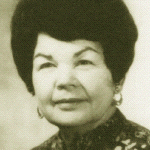mentoring
Laura Helmuth has written what I think is one of the most important posts so far to emerge from the fray that is Bora Zivkovic's: Don’t Be a Creep: Lessons from the latest terrible, sad, fascinating scandal in the science blogging world. Before getting to what I think is the most important part of her post, I want to first say what the most important overall lessons are, clearly, from this whole maneno, because they are different than the lesson Laura writes about:
1) Men behaving poorly in relation to women, in the context of power imbalances (but also without the power imbalance) is…
I did not turn on the computer yesterday (yes, it was glorious) so I missed Mother's Day coverage in our local newspaper. When we returned home, I was happy to see that on the front page of the print copy the dean of Duke School of Medicine, Nancy Andrews, MD, PhD, was featured with her daughter in the lab on their fun Saturdays together.
Also cited and pictured in the article was Duke vice dean for research and professor of pharmacology and cancer biology, Sally Kornbluth, PhD, and her daughter.
Written by News & Observer science editor Sarah Avery, the article describes how women are…
Yesterday in my "Ethics in Science" class, we were discussing mentoring. Near the end of the class meeting, I noted that scientists in training have a resource nowadays that just wasn't available during my misspent scientific youth (back in the last millennium): the blogosphere.
What does the blogosphere have to do with mentoring?
For one thing, it can give you a glimpse of the lives of people who are working out how how to become grown-up scientists, or how to combine a scientific career with a life outside of that career. The wide array of scientists at different career stages working out…
I'm delighted to see those $32/article access fees going to good use: Nature is accepting nominations to recognize two outstanding research mentors in Canada with cash prizes.
Since they were launched in 2005, Nature's awards for mentoring in science have rewarded outstanding research mentors in Britain, Germany, Japan, Australia and South Africa. The competition is held within one country each year, in the belief that mentoring reflects not just notions of good scientific practice and creativity that are universal, but also scientific traditions and cultures that are, at least to a degree,…
The Preamble
Four years ago today, I wrote my first post in the blogosphere over at the old Blogger version of Terra Sigillata. The post, entitled, "A Humble PharmBoy Begins to Sow," set out my mission to be an objective source for information on natural health remedies and drugs that come from nature, whether used as single agent prescription drugs or as botanical mixtures and supplements.
I read blogs for about six months before setting off on my own, primarily because I wanted to be sure my efforts were not redundant with others. Because I am academic and paid by a combination of federal…
After tropical forests are cleared for agriculture and then abandoned, secondary forests regrow on the site. But how do plant species composition, biomass and soil organic matter differ through this succession of primary forest, pasture, and secondary forest? Employing tools of biogeochemistry, ecosystem ecology, and land-use/land-cover change to examine those and related questions, Erika Marin-Spiotta earned a Ph.D. in environmental science, policy, and management from the University of California at Berkeley, a post-doctoral fellowship at the University of California at Santa Barbara, and…
[This 23rd July entry is being reposted today under the ScienceBlogs "Education" channel as its original categorization there fell victim to gremlins in the upgraded Movable Type script.]
At the outset, let me say that I have immense respect and admiration for a special commenter.
In last week's Friday Fermentable post, we took the 40th anniversary of the Apollo XI mission as an opportunity to draw attention to Buzz Aldrin's newly-released autobiography, Magnificent Desolation. In it, Aldrin describes his lifelong battle with depression and alcoholism and how he has managed both challenges.…
There has been some recent discussion on the blogs and on Facebook about the tension an adviser might experience between paying attention to graduate students and doing the other stuff you are supposed to do, or from the student perspective, how to deal with getting that quality time from your adviser.
Much of this discussion is in the area of standard NIH funded lab-ratty science which is a world that I am only marginally familiar with. But that is not the only kind of science that is done, and these issues permeate academia beyond the sciences. There are built-in tensions between doing…
Although I saw this obituary over the weekend, I didn't get to posting it until today. I was reminded by a local friend, an outstanding young scientist in her own right, of the impact that Dr Schanberg had made on so, so many lives in science, medicine, and our larger community.
I only had the honor of meeting Dr Schanberg once, shortly after his cancer diagnosis, while we were at a Duke Cancer Patient Support Center fundraising dinner. His wife of over 50 years, Rachel, is founder and former director of the organization which they started following the loss of their own daughter.
Among…
I was having a lovely conversation this week with scribbler50, our beloved blogging bartender at Behind The Stick. Describing him as "just" a blogger does not do him justice; scribbler50 is a writer. If you haven't been over to Brother Scribb's crib, do yourself a favor and read a few of his essays. In fact, read the whole archives.
Scribb and I got into a discussion of wine connoisseurs sometimes being as pretentious and annoying as the single malt scotch drinkers about which he has written with piercing accuracy and humor. Thinking that perhaps he had offended me, he qualified the…
Bear with me this morning because I am growing very weary of my physician colleagues enduring all sorts of haranguing for being hateful, pharma shills who only want to cut, burn, and poison.
I was extremely fortunate, personally and professionally, to train in two clinical units with strong basic science programs. As such, I worked at the bench with MD fellows and we schooled each other on our respective strengths. I loved when when my colleagues would come back from clinic and tell me of experiences that put our bench work in real world perspective. Yes, not all bench work is immediately…
Several of my blogging colleagues have been discussing over the last few days whether there is value in cultivating fellow scientists as readers of science blogs. While some find this a waste of time, others recognize that blogs provide a useful, real-time platform for disseminating information and discussing current issues and career development challenges that cannot be done well in print format. The informality of the blog also allows for frank discussion to be had between senior scientists, trainees, and the general public that do not often (if at all) occur at one's home institution.…
Dr Geraldine P Woods (1921-1999) was inarguably the most influential scientist in establishing and promoting NIH's programs in research and research training for underrepresented groups. Therefore, I have chosen her story for my entry to this month's Diversity in Science blog carnival recognizing Women's History Month.
My interest in Dr Woods was inspired by a recent post by my friend and colleague, acmegirl, who writes the blog, Thesis - With Children. In her post recognizing the work of Duke University behavioral biologist, Dr Erich Jarvis, acmegirl noted that both she and Dr Jarvis are…
I probably should have noticed the warning signs about my graduate program earlier---like, in the first week, when I went to meet my temporary assigned advisor and he said "Oh, uh, I don't want any more students right now. Go find yourself another advisor." (I guess he didn't really understand the whole idea behind "temporary advisor".) I probably should have trusted my instincts to run away to saner pastures, but I decided to stick around for a bit. What I didn't realize at the time was that things would soon get much, much worse.
Fast forward to the end of my first year. I had finished…
For my Ada Lovelace Day post, I wanted to focus on someone who is doing interesting and interdisciplinary work in computer science, and whose work has interesting and important applications. Justine Cassell, Director of the Center for Technology and Social Behavior at Northwestern University, is just such a person.
I first heard about Dr. Cassell's work in this article:
Using "virtual peers" -- animated life-sized children that simulate the behaviors and conversation of typically developing children -- Northwestern University researchers are developing interventions designed to prepare…
Just a friendly reminder that tomorrow, March 24, is Ada Lovelace Day, a day devoted to highlighting women in technology. Get your posts together! (Even if you didn't sign the pledge, please join in on the fun!) Details on how to post and tag are here.
I am so excited about my own post---the woman I am posting about totally rocks, and I can't wait to introduce you to her and her work.
Also, while we are on the subject of reminders: If you're not familiar with fellow scibling Isis the Scientist....well, why the hell aren't you reading her already? Anyway, you definitely want to click…
Um, hi. Apparently I've been gone for a while. Yeah. Sorry about that. Life's been a bit crazy around here lately, and I feel like I'm barely keeping my head above water. I'm not sleeping. I'm not taking care of myself. I'm sick. I'm stressed to the gills. I have way too much to do. I feel like I work all the damn time. Hmmm, maybe that's because I *do* work all the damn time.
In addition to not having time to breathe blog, I haven't really been in the headspace to blog. I have a ton of stuff on my mind, but I'm not sure how to blog it. It's all about tenure, of course: the…
We're really fortunate here at Terra Sigillata World Headquarters to have a strong, dedicated readership. But I'm always tickled when we attract new readers and attention to the views we express here.
Late yesterday I received a very nice e-mail from Andrew Plemmons Pratt, Managing Editor of Science Progress, a blog of the well-known liberal think tank, Center for American Progress.
In his post, Don't Bury the Next Generation of Researchers Under Billions in NIH Funding, Andrew notes my enthusiasm in our 23 Feb post for being sure that junior investigators already in the pipeline not be…
Over at Sciencewomen, Alice has a post up on the topic of colleagiality that includes the story of a casual encounter with a very nice outcome:
...my seatmate was Jamie Comstock, provost of Butler University. She saw I was editing a student's paper, and asked "Faculty or student?" That was nice that she didn't presume I was a student. :-) She introduced herself, and then did I, and mentioned I was in my second year of tenure-track at Purdue. She went back to reading her book, and I went back to my paper; and then she said, "Can I interrupt you for a second?" She said she was very curious to…
I'm supervising a few independent studies this year, with groups of students working on fairly large and fairly fuzzily-defined design projects. These groups couldn't be more different from each other in terms of the way they act as a group, act as individuals, and interact with me. It's got me thinking a lot lately about group dynamics among students and the strong influences that certain individuals have over the behavior of the entire group.
One of the groups is highly functional---on the surface. The students all get along really well with each other and appear to complement each other…



